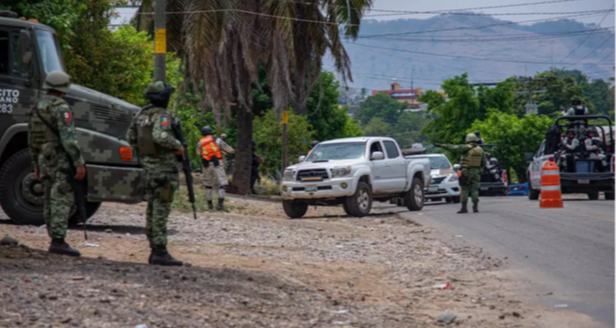
By Roberto Morejon
Organized crime is vying for control of territories and has exacerbated unrest in the border region between Mexico and Guatemala.
The governments of both countries have had to send military and police forces to secure the region on both sides of an international border of approximately 965 kilometers.
On the Guatemalan side are the departments of San Marcos, Huehuetenango, Quiché and Petén and on the Mexican side are the states of Chiapas, Tabasco and Campeche.
This is a territory with an indigenous presence and even with poverty, regardless of the aid that has arrived on the orders of President Andrés Manuel López Obrador.
Rival Mexican gangs from the Sinaloa and Jalisco New Generation cartels have been fighting for years for control over the trafficking of merchandise, migrants, arms and drugs in the area.
The regional office of the business association Coparmex reported disappearances, extortion and road blockades, but officially it was learned that normality had been restored thanks to the presence of the troops sent by the Mexican government.
Under this protection, technicians were able to work and reestablish access to basic services, such as electricity, which had been cut off by gangs.
All of this is in defiance of the Mexican government's security policy, which calls for dialogue rather than force alone, as in previous years.
President López Obrador prioritizes attention to social problems through the so-called Programs for the Welfare of Residents in the most depressed areas, as now used by drug traffickers and organized crime.
By sending troops, the presence of security institutions should be strengthened and, if necessary, order and freedom of movement should be restored.
However, drug cartels and other criminals always destroy the social fabric of the places where they operate.
However, the President of Mexico warned about what he considered to be the over-dimensioning of the events in the border with Guatemala, for electoral purposes of the opposition.
The opponents of the process of the fourth transformation also appeal to the migratory conflict in the south of Mexico, where thousands of people are crowded in search of obtaining permission to reach the border with the United States.
Southern Mexico has become a porous region to which all types of criminals, including human traffickers, pay attention.

